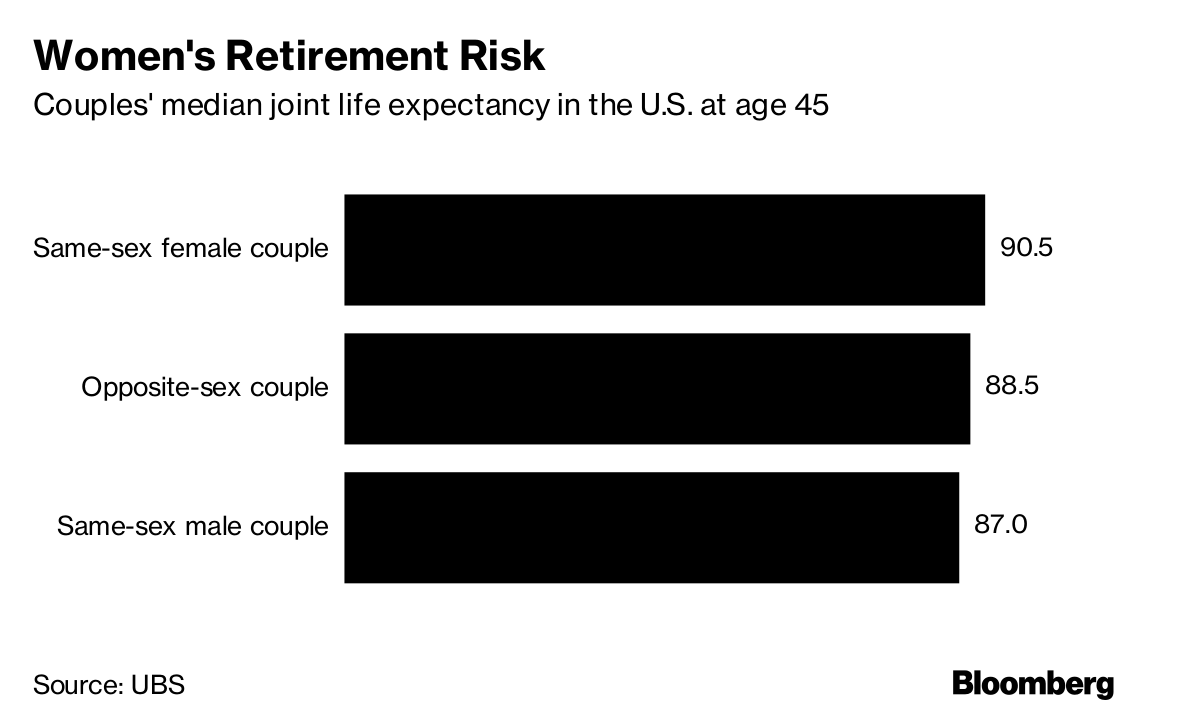(Bloomberg) --Every family worries about money in its own way, but LGBT families still have special reasons to be concerned.
Two women married to each other, for example, must plan for more expensive retirements than other couples, UBS Group AG said Monday in a report. Because women live longer than men, the bank calculates that in the U.S. one or both members of a female same-sex couple at age 45 are 50 percent more likely to live to 100 than heterosexual couples. Same-sex female couples are two to three times more likely to reach 100 than one or both members of a 45-year-old same-sex male couple.

"One major consideration of day-to-day financial planning concerns emergency funds," Zurich-based UBS said in the report. That’s because there are no anti-discrimination laws for LGBT workers in 30 U.S. states and in much of the rest of the world, including Singapore and Hong Kong. LGBT employees "may face higher job risk than heterosexual employees," UBS said.
Only a little more than half of LGBT workers in the U.S. said they were comfortable being out at work, according to a survey by Human Rights Campaign released in June. The number has barely budged in a decade.
Other financial risks for LGBT couples can vary based on where they live. In Singapore or Hong Kong, for example, widows or widowers generally aren’t eligible to inherit their same-sex partners’ pension or welfare benefits. That’s less of a concern in places that legally recognize same-sex marriage like the U.S. and U.K. In Switzerland, meanwhile, same-sex couples can’t legally marry but are eligible to inherit pensions.
For LGBT couples and their financial advisers, a lot hinges on getting the details right. Depending on where they live, LGBT "investors may have to pay particular attention to having wills, advance-care directives or trusts in place to ensure that their end-of-life and legal wishes are met,” UBS said.
To contact the reporter on this story: Ben Steverman in New York at [email protected] To contact the editors responsible for this story: Pierre Paulden at [email protected] Peter Eichenbaum, Steven Crabill





